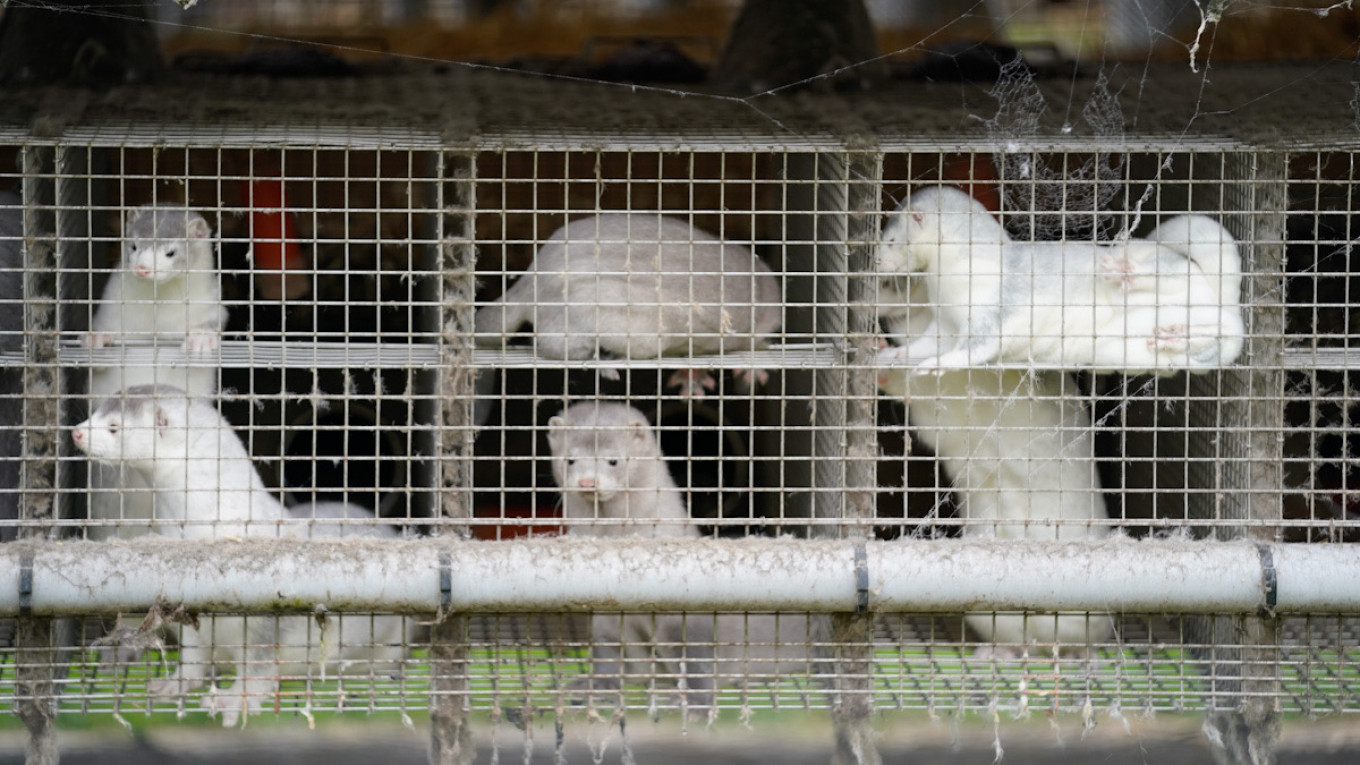Producers of mink fur in Russia said Friday they have not encountered outbreaks of the coronavirus on their farms and do not have plans to cull their stocks amid growing concerns in Europe that the virus could spread and mutate in mink-to-human transmission.
“We have no intention of killing our mink because of Covid-19. Our animals and staff working on the farms have been completely healthy and we haven’t seen anything unusual,” a representative of Russia’s largest mink farm, Kaliningrad-based Bagrationovskoye, told The Moscow Times.
Denmark on Wednesday announced that it would cull its entire mink population — as many as 17 million — after a mutated form of the coronavirus that can spread to humans was found on mink farms. Danish researchers said they found that the animals can harbor new mutations of the virus that could undermine the effectiveness of the Covid-19 vaccines that are currently being developed worldwide. At least 12 Danes have so far been diagnosed with mink-related coronavirus.
Two other large mink farms in Russia also said they had not diagnosed any cases of the coronavirus and were not aware of any mink-related coronavirus cases in Russia.
Minks’ susceptibility to the coronavirus came first to light in April when the Netherlands reported outbreaks on mink farms. Infected humans who work there can transmit the virus to captive mink, which are kept in close quarters ideal for rapid transmission from mink to mink, where scientists say the virus can mutate. The altered virus is believed to then be transmitted from mink to human.
Spain and the Netherlands have also announced the culling of portions of their mink populations.
Sergei Stolbov, president of the Russian Fur Union told The Moscow Times that no plans have been made to “eliminate the entire stock of mink in the country,” calling the connection between mink and the coronavirus “understudied and far fetched.”
Stolbov criticized decisions by European countries to cull mink, blaming “politicians and various animal rights groups” for using the coronavirus to crackdown on mink farms.
“To please them, the world’s best gene pool of mink will now be destroyed.”
Russia has a long history of mink production. In the 1980s, the country accounted for up to 40% of global production. The country now slaughters around 1.2 million mink annually, and its global share has fallen to 3% of the world’s total.
In conversations with The Moscow Times, mink producers complained that their business has been plummeting as China, the biggest importer of Russian mink, has temporarily banned the import of fur from abroad.
A Message from The Moscow Times:
Dear readers,
We are facing unprecedented challenges. Russia's Prosecutor General's Office has designated The Moscow Times as an "undesirable" organization, criminalizing our work and putting our staff at risk of prosecution. This follows our earlier unjust labeling as a "foreign agent."
These actions are direct attempts to silence independent journalism in Russia. The authorities claim our work "discredits the decisions of the Russian leadership." We see things differently: we strive to provide accurate, unbiased reporting on Russia.
We, the journalists of The Moscow Times, refuse to be silenced. But to continue our work, we need your help.
Your support, no matter how small, makes a world of difference. If you can, please support us monthly starting from just $2. It's quick to set up, and every contribution makes a significant impact.
By supporting The Moscow Times, you're defending open, independent journalism in the face of repression. Thank you for standing with us.
Remind me later.






